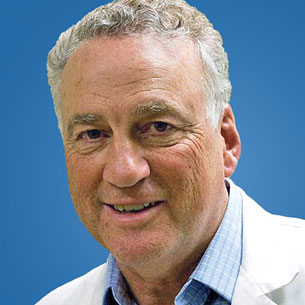A few years later, we were asked to participate in the trials that led to approval of goserelin, or Zoladex™. My anticipation was that if approved, the costs of both drugs would drop as the companies competed for market share. It didn't happen. There are, of course, many reasons, the greatest being that physicians generally didn't worry too much about how much a drug cost . . . insurance or Medicare picked up the cost. Instead, the two companies competed with favors to physicians. Many urology practices made huge profits from the mark-ups in drugs, and ultimately TAP paid one of the largest fines in history for unethical practices.
With the new drugs, notably abiraterone and enzalutamide, there have yet to emerge competitors that are approved. The drugs both work on the androgen stimulation axis, but via different mechanisms I have covered elsewhere. Each is incredibly expensive, around $6,000/month. But beyond the above "no compete" story, I am concerned that competitors may never even reach the "podium" to provide competition (whether financial or in marketing). The reason is that prostate cancer is inherently slow, and that the FDA requires survival as an endpoint. Add to this, that if a patient is on a new drug with some modest improvement in survival, this can be overwhelmed by patients going onto one of the other actives after they progress (rising psa or new lesions on scans) that will make it difficult to see the contribution to survival by "new drug."
The placebo patients will benefit equally from the new approved drugs. This may well be what happened to orteronel, (TAK 700) that was reported to have missed its survival endpoint needed for approval at the 2014 GU Meeting. Although I would like to think that approval would result in lower prices for all of the new drugs, the experience described above makes me skeptical.
So how about a new approval process? If a drug is clearly (and I'm not judging whether orteronel is or isn't the equal of abiraterone here) a comparable, approve it IF the company will provide its "me too" drug to patients at a substantially reduced price. There would still be an advantage for companies to race to be "first to market," and they would enjoy the high profits of being the winner with a new category of drug. On the other hand, competitors could still expect to enter the arena and do well, perhaps competing for first place by price rather than some minor difference in side effects or similar. HOWEVER . . . this assumes that Medicare, physicians, and insurers would prescribe based on cost savings, something currently forbidden by Medicare but allowed in the VA administration. And then there would be the fancy TV ads trying to convince patients one drug is better than another based on sitting in bath tubs and looking at sunsets . . . .
This post originally was published on prost8blog and is reprinted with permission of Dr. Glodé.


Comments
Ben C. Creelan, MD, MS
Feb, 26 2014 9:12 PM
It seems like we need better drugs in cancers such as prostate. My understanding is that prostate cancer is usually a disease characterized by a long natural history, and we need drugs that will make a meaningful difference in lifespan. Many patients in the community have already been receiving inappropriate ADT due to misalignment of practice incentives, and thereby suffering from adverse effects from drugs they may never benefit from. So it hardly seems wise to encourage the adoption of dubious endpoints like PSA-free survival or time-to-recurrence. I think the effect of cross-over is probably somewhat over-stated in most cases.
Patients will not be happy until they achieve durable remissions. I think drug approvals should be aimed more at touchdowns, not half-yard gains.